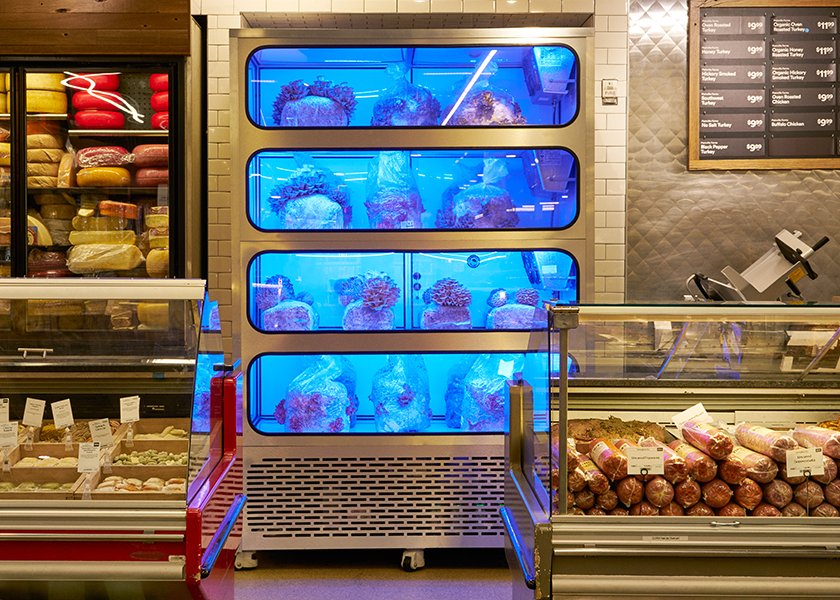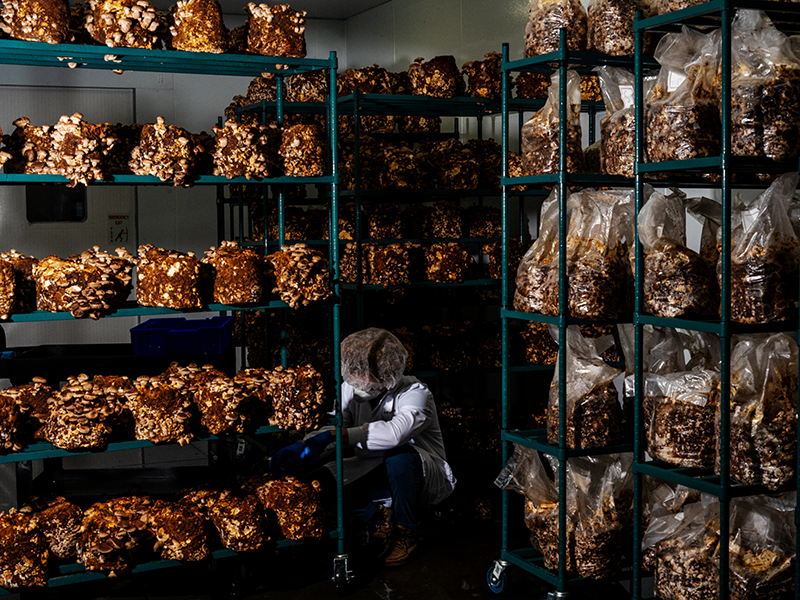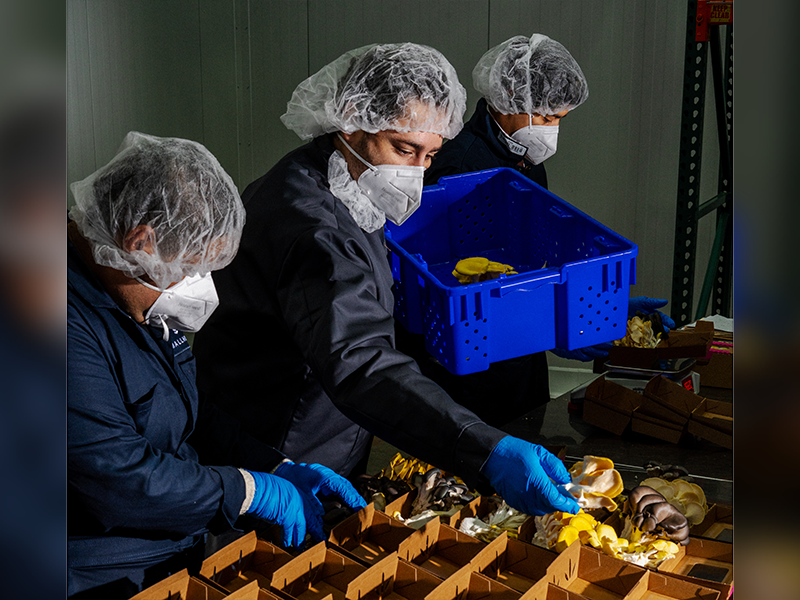Stores grow mushrooms on-site with Smallhold ‘minifarms’

With mushroom growing operations in several U.S. regions, Brooklyn, N.Y.-based Smallhold calls itself “a national brand with a local presence.”
The 5-year-old “urban mushroom farmer” takes local to an extreme as it not only delivers fresh mushrooms to about 400 supermarkets and restaurants, but also works with a number of locations to help them raise their own organic specialty varieties on-site.
Smallhold now has miniature mushroom farms in 10 Central Market stores in Texas, among other supermarkets and restaurants, and plans to launch more in the near future, said Marketing Director Abigail Knoff.
The minifarms have four or five shelves, each of which is controlled for factors such as humidity, light, temperature and carbon dioxide, Knoff said.
Mushrooms are harvested by store personnel and merchandised in bulk bins in the produce section. The company trains store produce teams to harvest and maintain the mushrooms, though it also sends representatives to help with maintenance.

Smallhold operates its own high-tech mushroom farms in Brooklyn; Austin, Texas; and Vernon, Calif., just outside of Los Angeles.
Product grown and delivered by Smallhold is packaged in sustainable clamshell containers.
Smallhold also has a research and development lab in Austin and uses patented systems developed by co-founder Andrew Carter and the company’s engineering team that feature the latest indoor agriculture technology to produce a handful of core varieties — lion’s mane, blue oyster, yellow oyster, trumpet, maitake and shiitake, Knoff said.
The company, founded in 2017 by Carter and Adam DeMartino, chief innovations officer, also experiments with other varieties, like chestnut and black pearl oyster mushrooms.
Demand for mushrooms — specialty varieties in particular — has increased dramatically in recent years thanks to popularization by chefs, restaurants and food influencers as well as a shift by consumers toward plant-based diets and a desire to find sources of protein that are sustainably grown, Knoff said.

“A lot of trends converged,” she said.
Since specialty mushrooms typically are somewhat delicate and more difficult to transport long distances than conventional ones, Smallhold’s founders wanted to create a network of mushroom farms to solve some of the logistical challenges, she said.
They also want to change the way people think about their environment, sustainability and biodiversity, she added.
Smallhold now has a total growing footprint of about 75,000 square feet.







